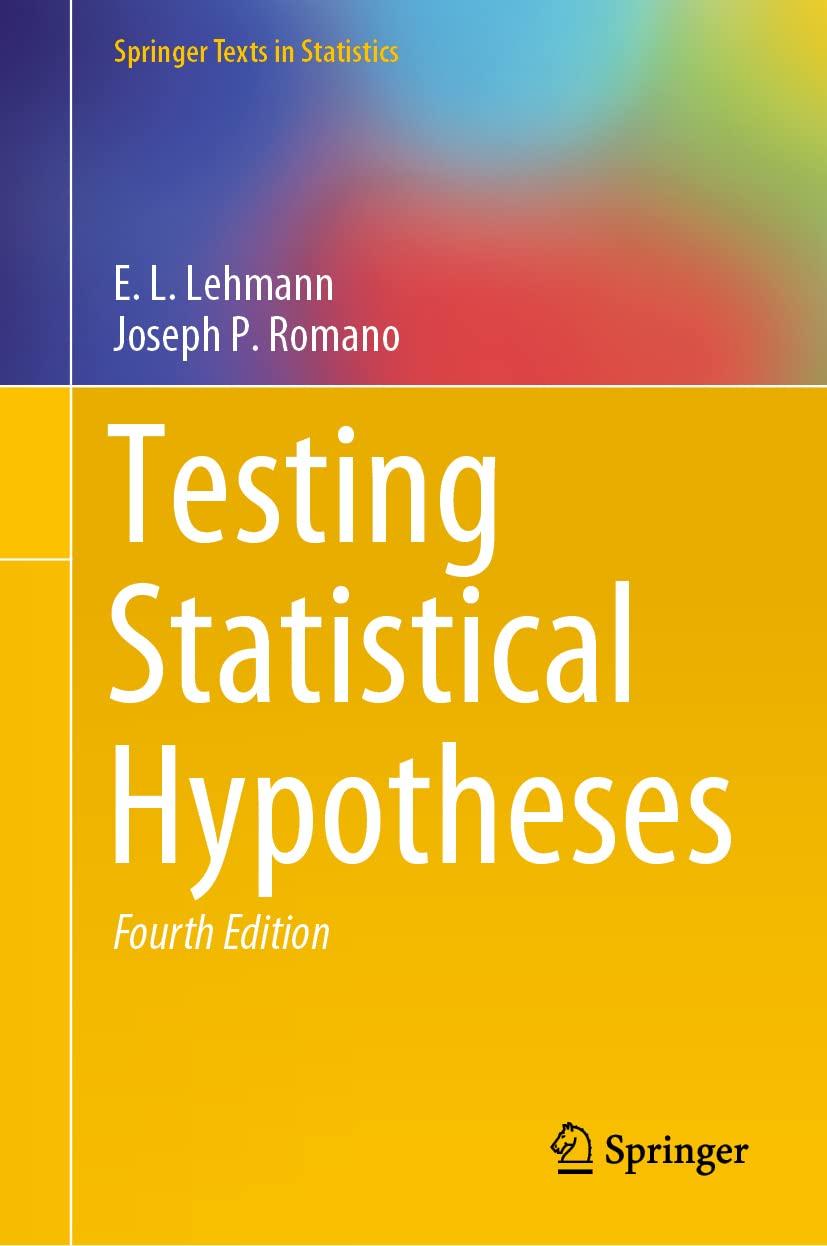Let Xi = + Ui , and suppose that the joint density f of the Us
Question:
Let Xi = ξ + Ui , and suppose that the joint density f of the U’s is spherically symmetric, that is, a function of U2 i only, f (u1,..., un) = q(
u2 i ) .
Show that the null distribution of the one-sample t-statistic is independent of q and hence is the same as in the normal case, namely Student’s t with n − 1 degrees of freedom. Hint: Write tn as n1/2X¯ n/
X2 j
(Xi − X¯ n)2/(n − 1)
X2 j
, and use the fact that when ξ = 0, the density of X1,..., Xn is constant over the spheres x 2 j = c and hence the conditional distribution of the variables Xi /
X2 j
given X2 j = c is uniform over the conditioning sphere and hence independent of q. Note. This model represents one departure from the normal-theory assumption, which does not affect the level of the test. The effect of a much weaker symmetry condition more likely to arise in practice is investigated by Efron (1969)
Step by Step Answer:

Testing Statistical Hypotheses Volume I
ISBN: 9783030705770
4th Edition
Authors: E.L. Lehmann, Joseph P. Romano






